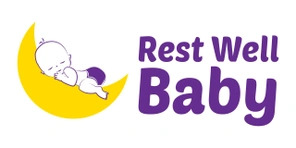Blog

How Do I Get My Baby To Like The Crib?
Is Your Baby Really Crib-Averse?
Understanding Your Baby's Sleep Habits
It's a common misconception that babies dislike their cribs. In reality, babies often find the crib comfortable. The issue often lies in their sleep associations and their ability to self-soothe.
The Role of Sleep Associations
When babies rely on external factors like being rocked, fed, or held to fall asleep, they become conditioned to these associations. This can lead to difficulty falling asleep independently, especially when placed in a crib alone.
The Solution: Independent Sleep Skills
Here's one approach that you can try to help your baby become more comfortable in their crib:
Drowsy, Not Sleepy:
Rock, feed, or cuddle your baby until they are drowsy but not fully asleep.
This ensures they are relaxed and ready for sleep but still conscious enough to transition to their crib.
Gentle Placement:
Gently place your baby in their crib while they are still drowsy.
Avoid stimulating activities or loud noises once they are in the crib.
Consistent Routine:
Establish a consistent bedtime routine to signal to your baby that it's time to wind down.
This can include a warm bath, a gentle massage, or reading a calming story.
Safe Sleep Environment:
Ensure your baby's crib is safe and free of loose blankets, pillows, or toys.
The American Academy of Pediatrics recommends placing your baby on their back to sleep.
Patience and Persistence:
It may take time for your baby to adjust to being in their crib.
Be patient and consistent with your approach. Avoid rushing or getting frustrated.
Overcoming Sleep Regressions
As your baby grows, they may experience sleep regressions, where their sleep patterns temporarily become disrupted. This is normal and can be attributed to various factors, such as teething, illness, or developmental milestones.
During these periods, it's important to maintain consistency in your sleep routine and provide some extra comfort and reassurance, if necessary.
Seeking Professional Help
Remember, a well-rested baby is a happy baby. By implementing these strategies and fostering a calm and consistent sleep environment, you can help your little one develop healthy sleep habits that will benefit them for years to come.
If you're struggling to help your baby develop healthy sleep habits, Book your 30 minute Sweet Dreams Starter call to learn how I can help your family get the gift of sleep.
Yours in sleep,
Tracie / Rest Well Baby
www.restwellbaby.com
Tracie Kesatie is a Certified Gentle Sleep Coach dedicated to helping families with little ones 0-10 years of age achieve a restful night's sleep.
Disclaimer: This article provides general information and is not intended as medical advice. Always consult with your pediatrician for any concerns about your child's health.
Blog





